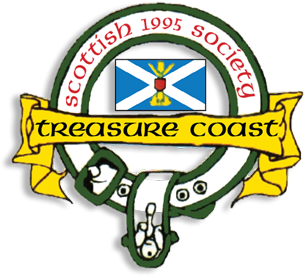Declaration Of Arbroath
April 6,1320
Arbroath Abbey, in the town of Arbroath Scotland was founded in 1178 by King William the Lion for a group of Benedictine monks from Kelso Abbey. It was dedicated to Thomas A Becket in 1197.
On April 6th, 1320, a collection of Scots - eight earls and thirty one barons, with Robert the Bruce at their head, met at the Abbey in Arbroath, near Dundee. They signed a document declaring their freedom from the tyranny of England and the English king. They asked the pope at Avignon to recognize Scotland as an independent nation.
Historically significant in this document was the implication that the King of Scotland could only rule with the approval of the people of Scotland. It was the first time anyone, anywhere, had thought about royalty and government in this way.
Two hundred forty years later (1560), the Scottish Parliament rejected the authority of the Pope and outlawed the Mass. The campaign of George Wishart and his sword-bearer, John Knox demanded that Scotland declare its independence from the corruption of the Roman Church, and under John Knox in August 1560, the forerunner of the Presbyterian Church was established.
Four hundred and fifty six years on, in 1776, an ocean away in the American colonies, a like-minded collection of men, many of whom were descended from Scots Presbyterians or Ulster Scots Presbyterians, declared their freedom from the tyranny of England.
General George Washington reportedly stated: “If defeated everywhere else I will make my last stand for liberty among the Scotch-Irish (Presbyterians) of my native Virginia”.
Captain Johann Heinrichs, of the Hessian Jaeger Corps in British service in the colonies, said in 1778: “Call it not an American rebellion; it is nothing more or less than an Irish Scotch (Scotch-Irish) Presbyterian rebellion”.
Colonel A. K. McClure, the Philadelphia writer, in the mid-1800’s commented: “It was the Scotch-Irish (sic) people of the colonies that made the Declaration of Independence of 1776. Without them it would not have been thought of except as a fancy. The actions of the Continental Congress voiced the teachings of the Scotch-Irish (sic) people of the land. They did not falter, they did not dissemble, they did not temporise. It was not the Quaker, nor the Puritan, not the Cavalier or the German, it was the Scotch-Irish of the land whose voice was first heard in Virginia”.
A colonial forerunner to the American Declaration of Independence was the Mecklenburg Declaration, signed at Charlotte in North Carolina on May 20, 1775 by 27 leading citizens in the region, 18 of whom were of Ulster Scots Presbyterian heritage.
There is no definitive corroboration that Thomas Jefferson, a learned, well read man, consulted the Arbroath Declaration before he set out to write our Declaration. However, one of his Scots ancestors [ his mother Jane Randolph traced her heritage to Lord Regent of Scotland 1st Earl of Moray, in the 14th century] Thomas Randolph, Earl of Moray, was a signatory to the Arbroath Declaration]. It is almost a certainty that Jefferson’s Scots and Scots-Ulster friends and neighbors were familiar with the groundbreaking document signed at Arbroath four hundred fifty six years prior.
In the 1970’s, a connection was put forth that the two documents were linked. Not true. However some of the significant tenets put forth in the Arbroath Declaration are inherent in our own Declaration: “From these countless evils, with His help who afterwards soothes and heals wounds, we are freed by [those] . . . like Maccabaeus or Joshua[.] [we] underwent toil and tiredness, hunger and danger with a light spirit in order to free the people and [their] inheritance from the hands of his enemies. And now, the divine Will, our just laws and customs, which we will defend to the death..... We do not fight for honour, riches, or glory, but solely for freedom which no true man gives up but with his life.”
Recognition of Arbroath and Tartan Day are enshrined into American law. On March 20,1998, Republican Senator Trent Lott successfully introduced a motion in Congress that the annual anniversary of the Declaration of Arbroath, April 6, should become National Tartan Day in the US. It is a celebration of Scottish heritage in America. Mr Lott suggested that “by honouring April 6, Americans will annually celebrate the true beginning of the quest for liberty and freedom – Arbroath and the declaration for liberty”.
Dr Lucille Craig
Secretary, Scottish Society of the Treasure Coast


